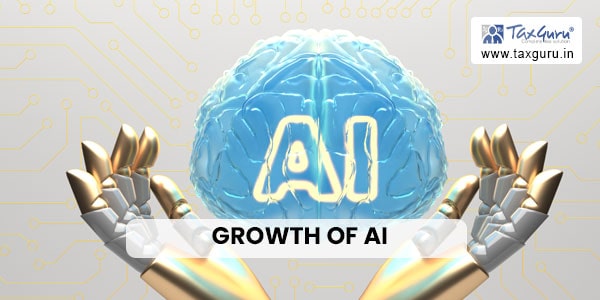The rapid growth of Artificial Intelligence (AI) is reshaping Indian labor laws, impacting job structures and worker rights. This article explores AI’s influence on businesses, potential wage reductions, and the resulting challenges. To address these issues, solutions like comprehensive education, a robust regulatory framework, and social security measures are crucial. Ensuring fair treatment, upskilling opportunities, and basic income support during transitions can help balance the transformative power of AI, fostering a future where technology benefits everyone while safeguarding workers’ rights under Indian labor laws.
Artificial Intelligence (AI) is rapidly becoming a part of our everyday lives, and its impact on Indian labor laws has been significant. In this article, we will explore how AI has changed the way businesses are structured, the implications for workers in India, and potential solutions to ensure that everyone benefits from this technology.

What is AI?
AI, or Artificial Intelligence, refers to the development of computer systems that are able to perform tasks normally requiring human intelligence. These include natural language processing (NLP), image recognition, and decision-making. The goal is to create machines that can simulate human behavior and thought processes to solve complex problems more quickly than humans could on their own. AI has become increasingly popular in recent years due to advancements in technology and its potential applications for businesses.
How has AI impacted Indian labor laws?
The growth of AI has had a profound impact on India’s labor laws. For one thing, it is changing the way businesses operate by allowing them to automate certain tasks such as customer service, marketing campaigns, and data analysis. This means fewer people are needed for these roles as companies rely more on machines powered by algorithms instead of human workers. In addition, AI can provide employers with insights about employee performance that may be used for decisions related to hiring or firing employees without any input from workers themselves.
Furthermore, some experts believe that the rise of automation will lead to a decrease in wages as companies look for ways to cut costs while still delivering quality services at competitive prices. This could result in many low-wage jobs being replaced by automated solutions, which would have serious implications for those employed in such positions who may find themselves out of work with no other options available to them under current labor laws. Additionally, there is concern that this shift towards automation will result in greater inequality between high-skilled tech professionals and lower-skilled manual laborers who may not have access to the resources required for retraining into new roles created by this technological revolution.
What are some possible solutions?
To ensure that everyone benefits from the growth of AI while also protecting vulnerable workers’ rights under Indian labor law, several measures need to be taken, including:
1. Education & Training: It is important that all citizens understand how Artificial Intelligence works so they can better prepare themselves when looking for employment opportunities or transitioning into new fields created through its use. Governments should invest heavily in programs aimed at educating students about different aspects of machine learning, robotics, big data analytics, etc. Additionally, providing training grants and subsidies, especially targeted towards disadvantaged communities, would help bridge any gaps between those already well-versed in tech skillsets versus those unable to take advantage due to a lack of financial resources.
2. Regulatory Framework: Establishing clear regulations governing the ethical use of Artificial Intelligence across industries would go a long way in ensuring fair treatment of workers, regardless of background or experience level. Laws need enforceable mechanisms to detect violations of practices and ensure compliance with standards set forth to protect individuals against exploitation while also promoting innovation within the industry itself. Such a framework must address issues like privacy protection, safety standards, and job security, among others, to make sure everyone involved in the process is treated fairly and equally, given the same opportunity to succeed and progress forward together as a society as a whole.
3. Social Security Measures: The government should implement social security measures to provide basic income support for affected individuals during the transition period when switching careers due to changes brought upon by technological advancements, i.e., the introduction of AI. This would help ensure that those unable to find employment after being displaced from their original role still have the means to maintain a basic standard of living while actively searching for new opportunities. Additionally, providing retraining programs to allow individuals to upgrade their skillsets and keep pace with the changing job market dynamics could also be a beneficial way to ensure that everyone is given a chance to succeed in the current environment, regardless of prior experience or knowledge level.
In conclusion, the growth of AI has had a significant impact on Indian labor laws. The implications are far-reaching and require careful consideration if we are to make sure that no one is left behind in this technological revolution. By investing more in education, creating a regulatory framework, and implementing social security measures, governments can create an environment where everyone benefits from Artificial Intelligence without sacrificing workers’ rights or putting them at risk of exploitation.




